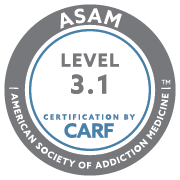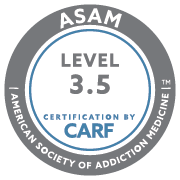After treatment, recovering addicts face many challenges as they navigate through recovery. It’s important to be aware of these challenges and to have a plan to deal with them. The first challenge that individuals will face in recovery is to develop a new set of coping skills. When an individual in recovery is faced with a situation that in the past lead them to use, they must be prepared with a new strategy to deal with this experience. Some examples might be financial challenges, the loss of a loved one, stresses at work or in relationships. If you already have a new healthy coping mechanism prepared in advance, you’ll be much more likely to handle these challenges. Use the tools you learned during treatment.
Another challenge that individuals in recovery experience is the need to avoid others who are using. If your old social groups or people you associated with from your workplace are using, it is critical that you find new hobbies, interests and social groups that support your new lifestyle. If you find yourself in a situation where you are around people who are using, do not be afraid to ask them to not use in your presence. This will help you to avoid any temptations.
Dealing with emotions is another challenge that you need to face in recovery. Anger and sadness are two very strong emotions that you may have coped with in the past by using. Finding stability in dealing with these emotions is important in recovery. Establishing consistency in your daily routine, beginning an exercise program or even attending counseling sessions, are all healthy ways of dealing with anger and sadness. Additionally, dealing with guilt or shame from past transgressions can be very difficult. That’s why making amends and rebuilding trust are an important piece of the recovery process.
Holidays and other special occasions are experiences that can make recovery difficult since others often drink as part of these celebrations. Individuals in recovery may find it even necessary to leave a party if they feel uncomfortable. As an alternative, you can create drug and alcohol-free traditions to invite friends and family to, just make sure they know your wishes in advance. Additionally, it’s important to make sure co-workers understand that you won’t be joining in celebrations at work that include drug or alcohol use. Making sure you are prepared to answer questions about your choice to abstain will help you feel prepared for these situations when they occur.
The most dangerous health risk that you will face in your recovery may be the result of an accidental overdose. If an individual who has gone through treatment and is now clean and sober were to experience a relapse, they might mistakenly ingest a dose similar to when they were using. During recovery, your tolerance has decreased and this leaves one vulnerable to an accidental overdose. The risk of an overdose is another reason why developing a strong support system is so important. In addition, Rimrock has available aftercare and relapse prevention services to help you deal with the challenges of recovery.
If you are interested in learning more about these or any of our other programs or services, contact our Admissions Department at 406-248-3175 or 800-227-3953, or visit us at www.rimrock.org. Normal admission hours are between 8:00 am and 5:00 pm Mountain Time, Monday through Friday. However, we do have staff available anytime to take your call. Contact us today to begin your journey towards recovery.




 Donate
Donate




